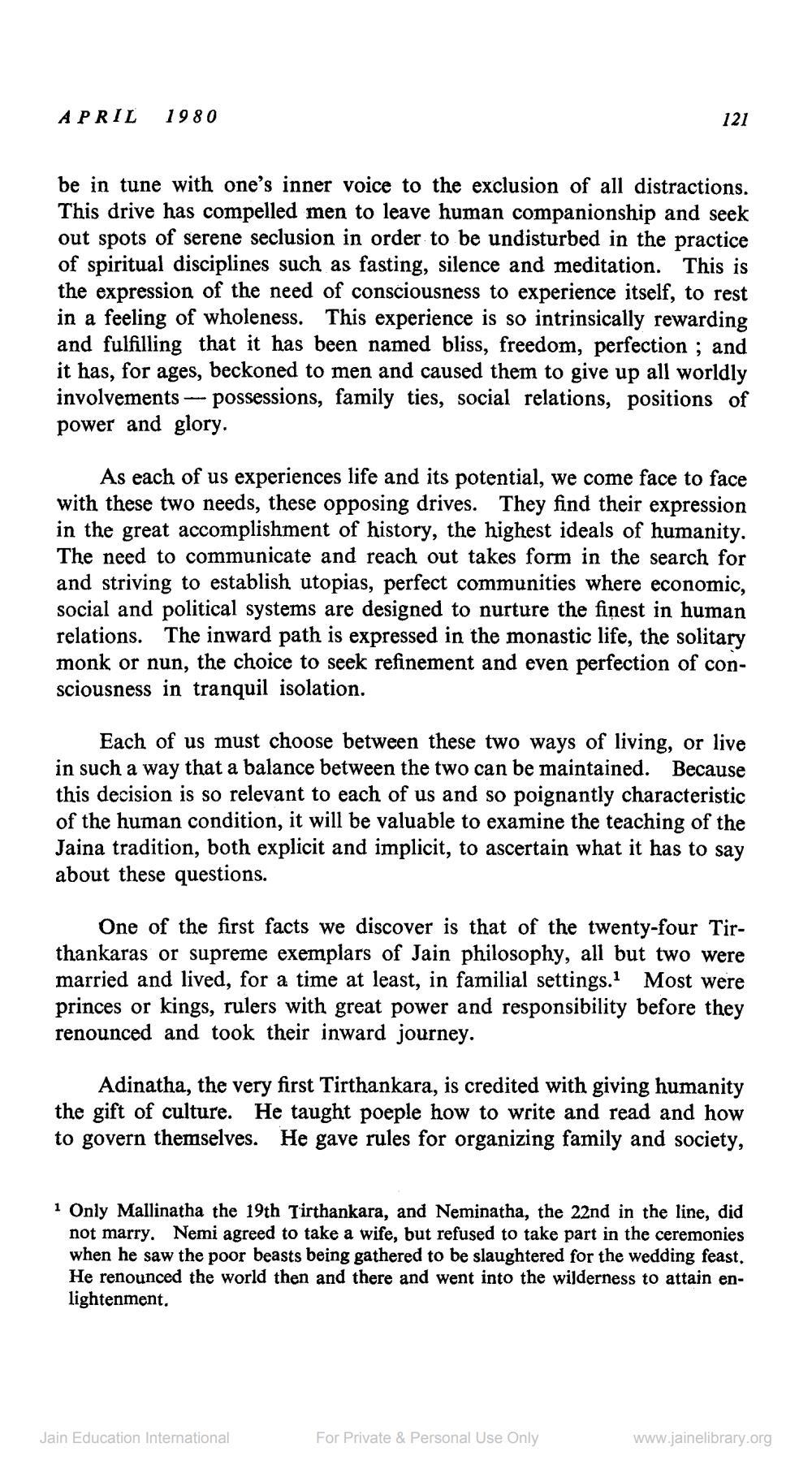Book Title: Jain Journal 1980 04 Author(s): Jain Bhawan Publication Publisher: Jain Bhawan Publication View full book textPage 9
________________ APRIL 1980 be in tune with one's inner voice to the exclusion of all distractions. This drive has compelled men to leave human companionship and seek out spots of serene seclusion in order to be undisturbed in the practice of spiritual disciplines such as fasting, silence and meditation. This is the expression of the need of consciousness to experience itself, to rest in a feeling of wholeness. This experience is so intrinsically rewarding and fulfilling that it has been named bliss, freedom, perfection; and it has, for ages, beckoned to men and caused them to give up all worldly involvements -- possessions, family ties, social relations, positions of power and glory. 121 As each of us experiences life and its potential, we come face to face with these two needs, these opposing drives. They find their expression in the great accomplishment of history, the highest ideals of humanity. The need to communicate and reach out takes form in the search for and striving to establish utopias, perfect communities where economic, social and political systems are designed to nurture the finest in human relations. The inward path is expressed in the monastic life, the solitary monk or nun, the choice to seek refinement and even perfection of consciousness in tranquil isolation. Each of us must choose between these two ways of living, or live in such a way that a balance between the two can be maintained. Because this decision is so relevant to each of us and so poignantly characteristic of the human condition, it will be valuable to examine the teaching of the Jaina tradition, both explicit and implicit, to ascertain what it has to say about these questions. One of the first facts we discover is that of the twenty-four Tirthankaras or supreme exemplars of Jain philosophy, all but two were married and lived, for a time at least, in familial settings.1 Most were princes or kings, rulers with great power and responsibility before they renounced and took their inward journey. Adinatha, the very first Tirthankara, is credited with giving humanity the gift of culture. He taught poeple how to write and read and how to govern themselves. He gave rules for organizing family and society, 1 Only Mallinatha the 19th Tirthankara, and Neminatha, the 22nd in the line, did not marry. Nemi agreed to take a wife, but refused to take part in the ceremonies when he saw the poor beasts being gathered to be slaughtered for the wedding feast. He renounced the world then and there and went into the wilderness to attain enlightenment. Jain Education International For Private & Personal Use Only www.jainelibrary.orgPage Navigation
1 ... 7 8 9 10 11 12 13 14 15 16 17 18 19 20 21 22 23 24 25 26 27 28 29 30 31 32 33 34 35 36 37 38 39 40 41 42 43 44 45 46 47 48 49 50 51 52 53 54 55 56 57 58 59 60 61 62 63 64 65 66 67 68 69 70 71 72 73 74 75 76 77 78 79 80 81
